World Twenty20: T20 is keeping West Indies cricket alive
- Published
- comments
This World Twenty20 final in Kolkata was more than just an unstoppable argument for a format that has so often drawn as much high-minded scorn as it has commercial backing.
It was both the coming of age of the youngest form of cricket and a signpost to the future: this is where the game is going, this is how the sport will survive.
T20 has been derided as a slog-fest. It has been disparaged as the dirty burger to Test cricket's five courses - satisfying only briefly, sickly in large amounts, forgotten as soon as it has been consumed.
This was the tournament and the final to underscore the new reality: that T20 is both a concentrated hit of the old skills and the crucible of the new; that it can ebb and flow just as much as its long-form ancestor; that in its tight confines can come just as much drama as from the unabridged classic.
If that still sounds heretical to you, consider merely the final exchanges of the final match of this competition.
Going into the final over, England were 1-9 on the betting exchanges to complete their victory over the West Indies. With 19 needed off six balls, why not? Carlos Brathwaite, the part-time batsman on strike, had scored a grand total of 25 runs across his four previous T20 internationals, spread across four and a half years. He had a top score of 13.
Bowler Ben Stokes had been part of a death squad that had conceded a meagre 20 runs off the last four overs in the semi-final win against New Zealand. The preceding 114 deliveries in the West Indies innings had brought only three sixes.
Four balls, four mighty swings, four sixes. One man broken, another transformed from obscurity to national hero.
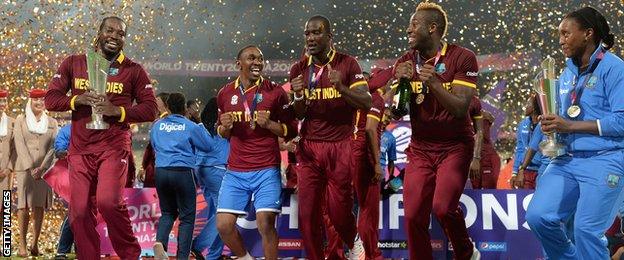
West Indies proved themselves a team - "a truly unified collection of talents"
And that was only the final unforeseen lurch in a plot that had flipped and twisted from the first over onwards. England 11-3 at the start of their charge, surely sunk before leaving harbour. The West Indies 5-2 in theirs, Chris Gayle gone not to a frontline in-swing king but the part-time off-spin of Joe Root.
Marlon Samuels, walking off to within a few strides of the boundary rope after being caught behind for 27, only to be reprieved by the latest of third umpire calls and going on to score an unbeaten 85, the highest individual score made in a World T20 final.
England, in control coming to the 15th over, Liam Plunkett bowling it having conceded a total of 11 off his first three, suddenly flayed across the dewy outfield for 18 runs to leave the West Indies favourites to chase down 50 more off 30 deliveries; the very next over, David Willey taking two wickets in three balls to apparently snatch the match back.
It went on, each reverse of momentum pivoting on another remarkable piece of skill. Willey with a pair of unplayable yorkers in the 18th to leave Brathwaite strokeless; the big Bajan then reaching his long arms forward to flip an identical ball back over his own head and that of wicketkeeper Jos Buttler for the four that reignited the chase.
Even the final ball before Brathwaite's decisive assault had appeared definitive: Samuels, surely ordained the last hope, beaten by a yorker from Chris Jordan that defied both the state of the contest and the dew-sodden state of the ball he had to control.
Withering tension, dead-eyed skill, knee-knocking drama. And no longer can those agnostics say it doesn't matter, not looking at the crouching figure of Stokes, not when this is a version of the game that has not only revitalised the sport but also saved one indispensable heartland.
West Indies are currently ranked eighth in the world for Test cricket. Only Bangladesh and the empty husk of Zimbabwe sit beneath them.
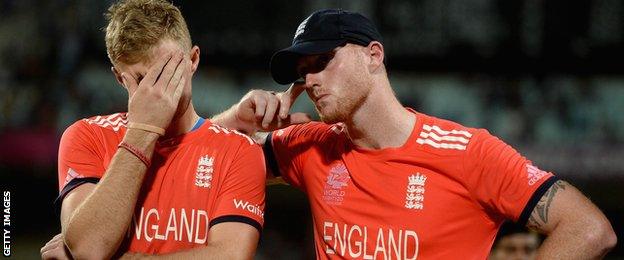
Joe Root and Ben Stokes were left disconsolate after a contest that ebbed and flowed like a Test
T20 has been cited as one of the primary factors in that sad demise. Half of this team haven't played a first-class cricket match in two years. Half of them were making money in the Big Bash at the same time as the Test team was being thrashed on other Australian grounds.
The reaction of Darren Sammy's players at the end told a different story, just as it had when they charged the pitch to celebrate the triumph of their women's team earlier in the afternoon.
T20 isn't killing Caribbean cricket. It's keeping it alive.
The board that runs the sport - frequently divided, usually hapless - threatened after a pay dispute on the eve of this tournament to send a second-string side. Mark Nicholas, cricket commentator, described the squad that did come as "short of brains".
It was not quite Tony Greig and "make them grovel", external but it had almost the same galvanising effect on this ageing team as that infamous comment did on the younger tourists of 1976.
Backs to the wall, vilified by both insiders and observers, this West Indies team proved itself exactly that: despite the star power of Chris Gayle, a truly unified collection of talents where each played his part.
In earlier victories it had been the 'Universe Boss' Chris Gayle and sky-scraping Sulieman Benn, then Andre Russell and Samuel Badree, then Johnson Charles and the late-arriving Lendl Simmons.
Each brought something special to be appreciated by the neutral as well as their long-suffering support back home: Badree, a leg-spinner opening the bowling with skiddy menace and quick googlies; Dwayne Bravo, with his slower balls not just disguised but obscured; Simmons detonating 82 off 51 balls in the semi-final win over hosts and favourites India, having spent most of the preceding three days on long-haul flights from the Caribbean.
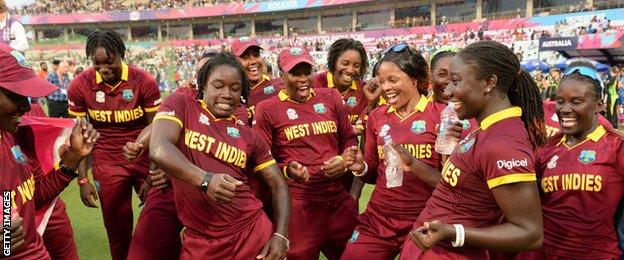
Earlier on Sunday, West Indies' women's side beat Australia for the first part of a double T20 triumph
In the final, as throughout, their catching was exceptional. With the ball in hand the discipline spoke of patience as well as brains: just one wide bowled on Sunday; just five extras conceded overall.
And it is not a fluke. Four years ago much of the same side won in the same style as they beat Sri Lanka on their home patch. Last time out they were beaten only by the eventual champions in the semi-finals.
There are echoes of history in this limited-overs success. Their West Indian predecessors launched their own decade of dominance with short-form feats, winning the first two one-day World Cups in 1975 and 1979 in a style that did much to silence the grumbles of the traditionalists unhappy with the new flat-out format.
This most recent triumph on a sticky night in Bengal is no less important than the two at a cooler and less colourful Lord's four long decades ago.
Different names, bigger hits, dancehall rather than dub, but the same result: Caribbean cricket come alive, the wider game enriched as a result.
If there were any doubters left, the hours approaching midnight in the Gardens of Eden must surely have silenced them.
- Published3 April 2016
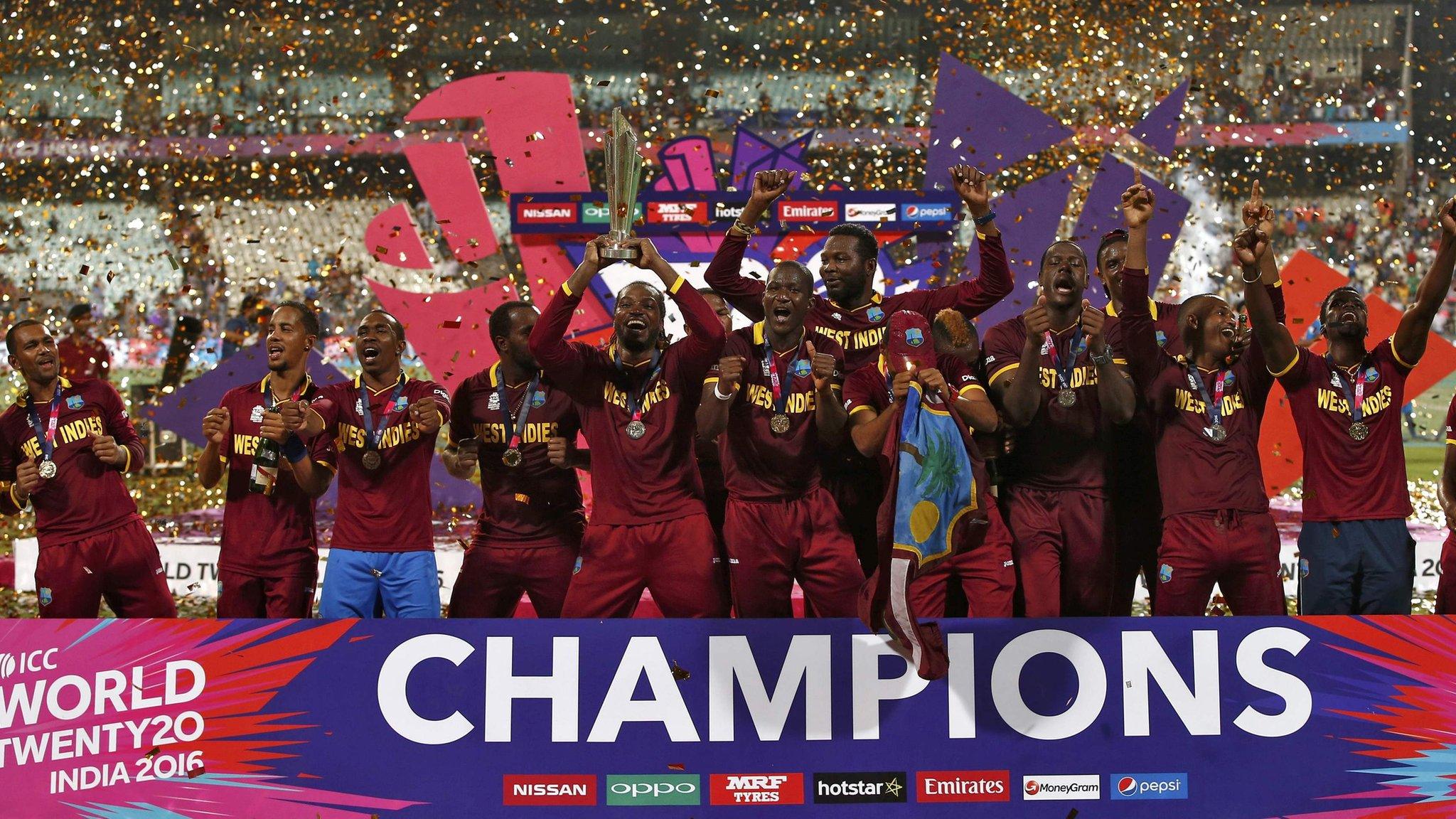
- Published3 April 2016
- Published4 April 2016
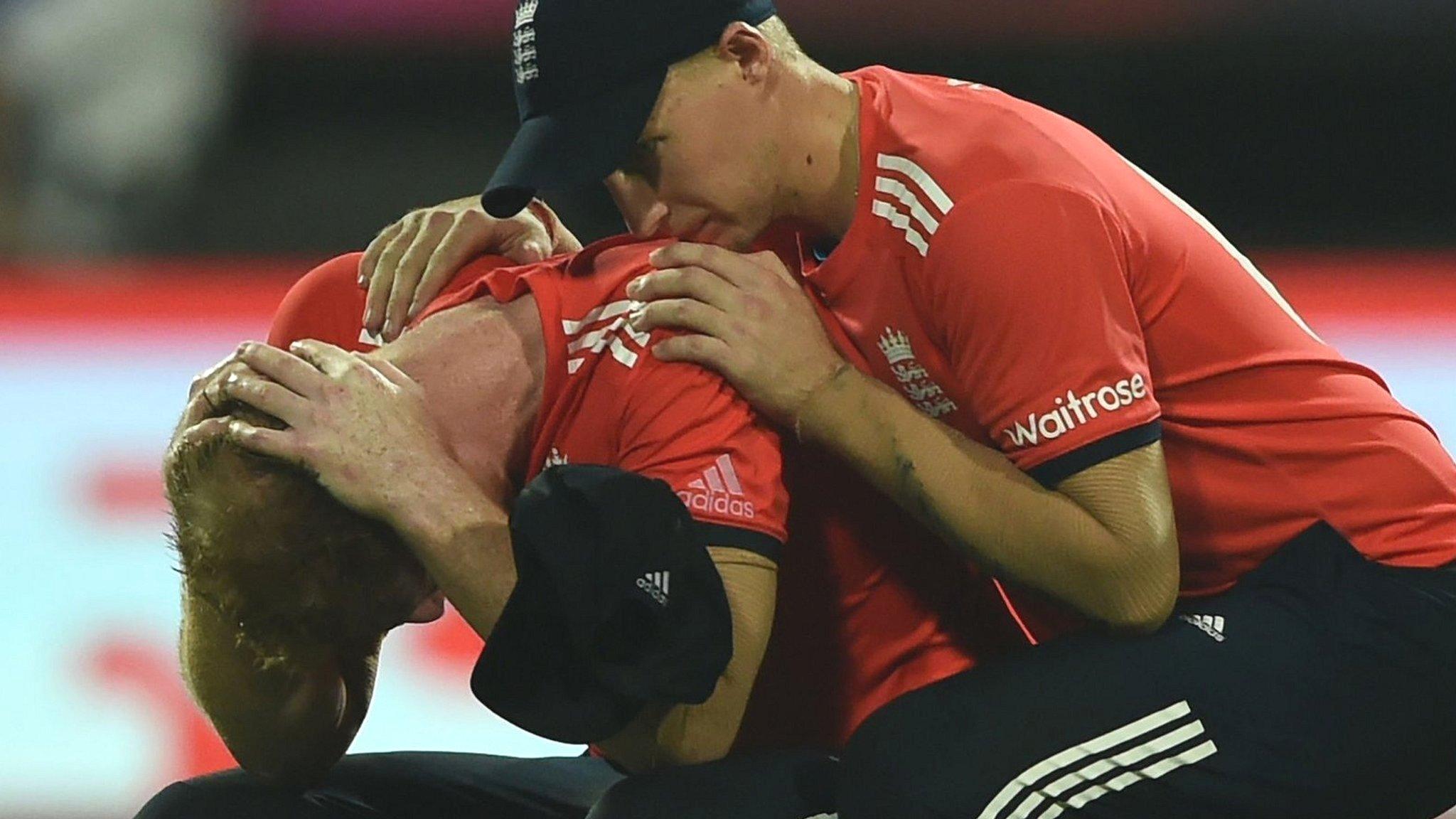
- Published3 April 2016
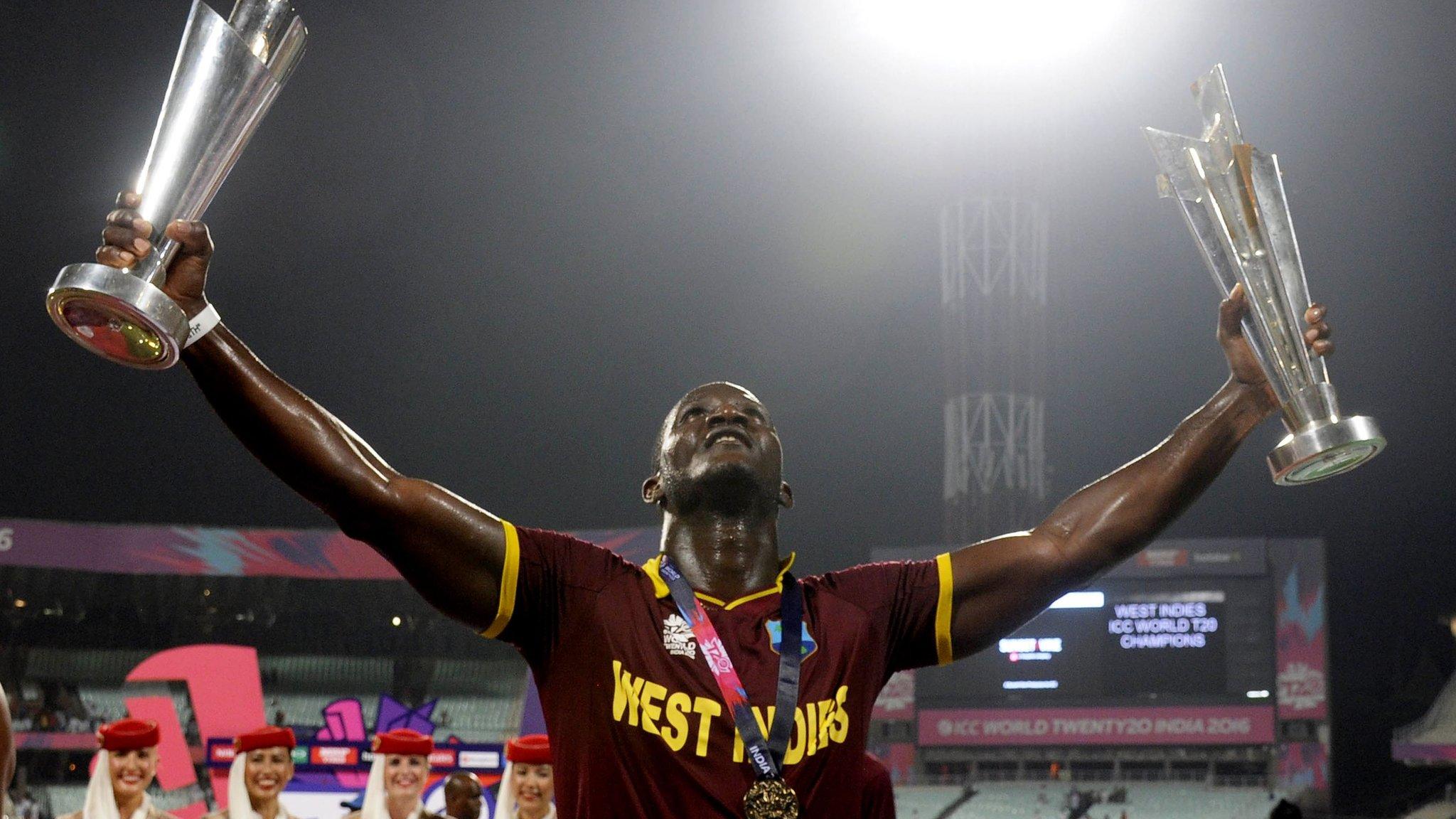
- Published3 April 2016
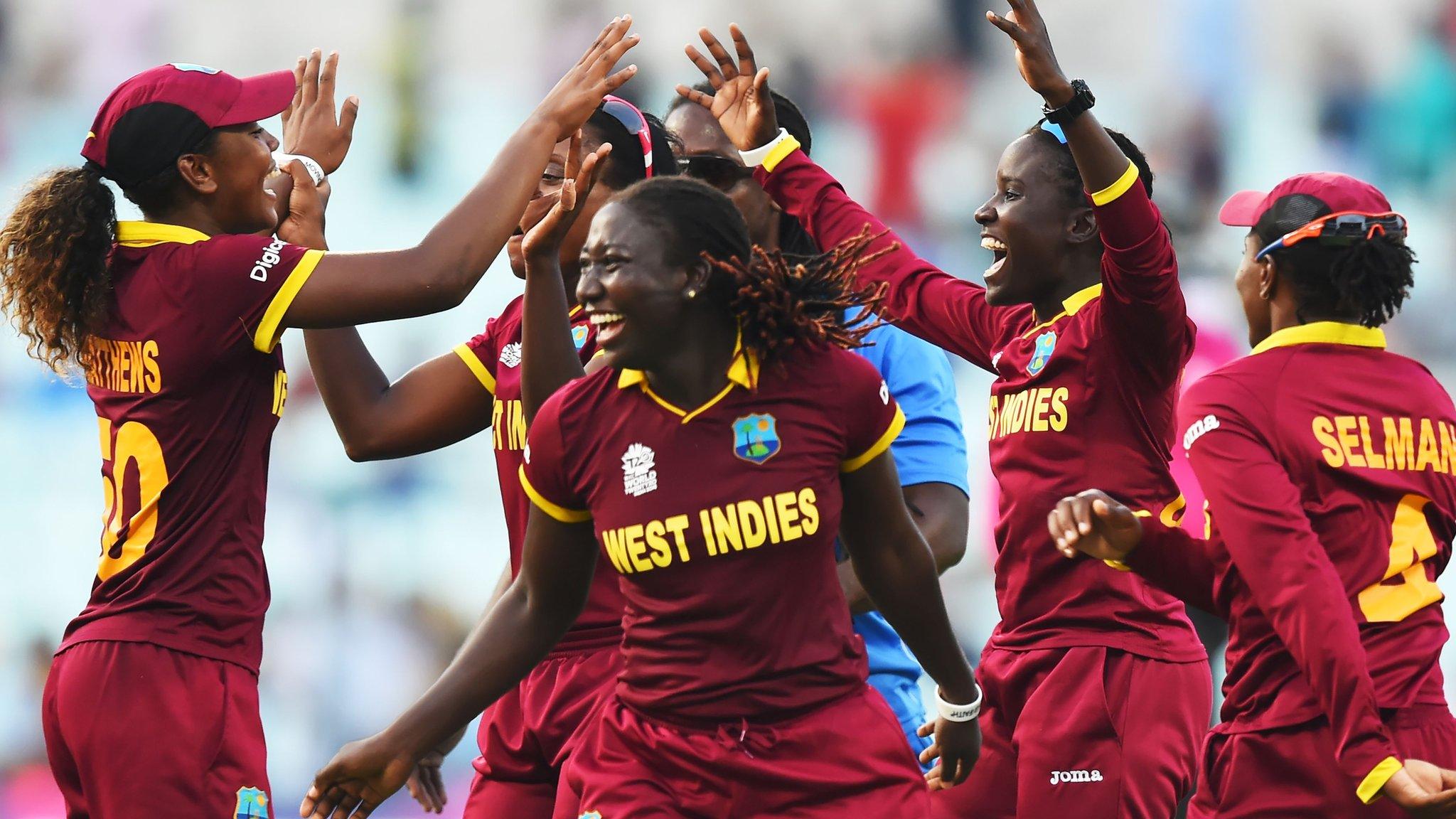
- Published1 April 2016
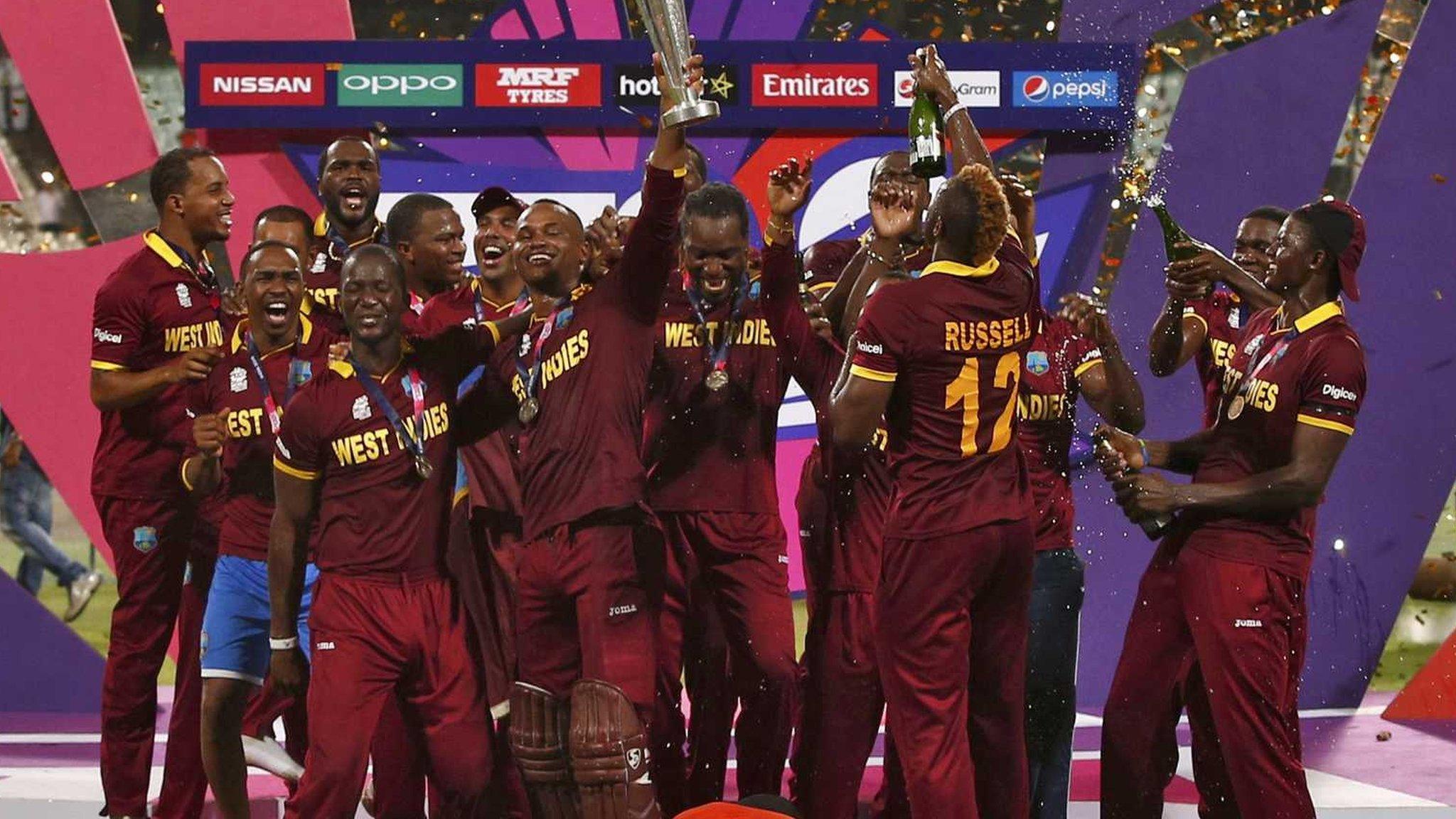
- Published18 October 2019

